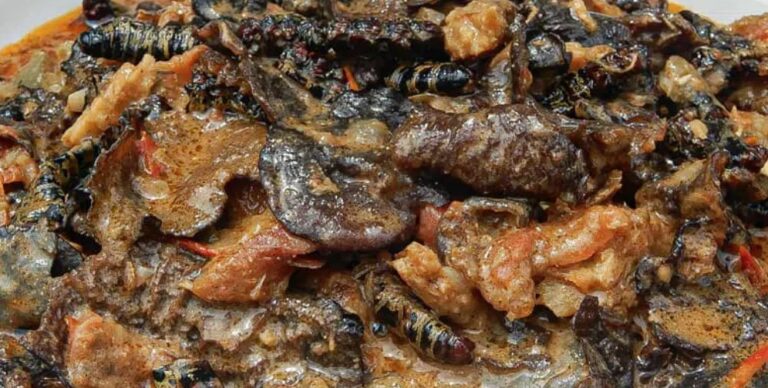Introduction to Angolan Cuisine
Angolan cuisine is a blend of Portuguese, African, and Brazilian influences. It is characterized by its bold flavors, vibrant colors, and a wide variety of ingredients ranging from seafood to meats, vegetables, and fruits. The cuisine of Angola is a reflection of the country’s history and culture.
Influences on Angolan Cooking
Portuguese colonization has had a significant influence on Angola’s cuisine. The Portuguese introduced ingredients such as rice, potatoes, and cassava, which are now staples in Angolan cuisine. The African influence can be seen in the use of spices, such as piri-piri, and the preparation of stews and grilled meats. The Brazilian influence is evident in the use of palm oil, which is a common ingredient in many Angolan dishes.
Common Ingredients in Angolan Dishes
Seafood is a significant part of Angolan cuisine due to its long coastline. Other common ingredients include cassava, yams, sweet potatoes, beans, and peanuts. Meats such as chicken, beef, and goat are also popular, and many dishes incorporate spices such as ginger, garlic, and red pepper. Additionally, fruits such as mangoes, papayas, and pineapples are used in both sweet and savory dishes.
Popular Angolan Recipes
One of the most popular dishes in Angola is Moamba de Galinha, a chicken stew made with palm oil, garlic, onions, and chili peppers. Another popular dish is Calulu, a fish stew made with dried cod, okra, and tomatoes. Funge, a type of porridge made from cassava flour, is a staple in Angolan cuisine and is often served with stews or grilled meats. Additionally, Angolans enjoy a variety of grilled meats, including chicken, beef, and goat.
Traditional Angolan Food Customs
In Angola, food is often eaten with one’s hands and shared communally. It is customary to eat from a communal pot, and the eldest member of the family typically serves the food. Additionally, Angolans enjoy drinking palm wine, which is made from the sap of palm trees, at social gatherings.
Regional Variations in Angolan Cuisine
The cuisine of Angola varies by region. In the northern part of the country, seafood is more prevalent, while in the central region, cassava and yams are more commonly consumed. In the southern region, grilled meats are more popular.
Street Food in Angola
Street food is a common sight in Angola, and vendors often sell grilled meats, fried fish, and traditional snacks such as pastel de bacalhau (codfish cakes) and empada de galinha (chicken turnovers).
Conclusion: Angolan Cuisine Today
Angolan cuisine continues to evolve as the country undergoes modernization and globalization. However, traditional dishes and customs remain an essential part of the culture, with many Angolans continuing to prepare and enjoy traditional recipes. Overall, Angolan cuisine is a unique blend of African, Portuguese, and Brazilian influences, characterized by bold flavors and a wide variety of ingredients.

